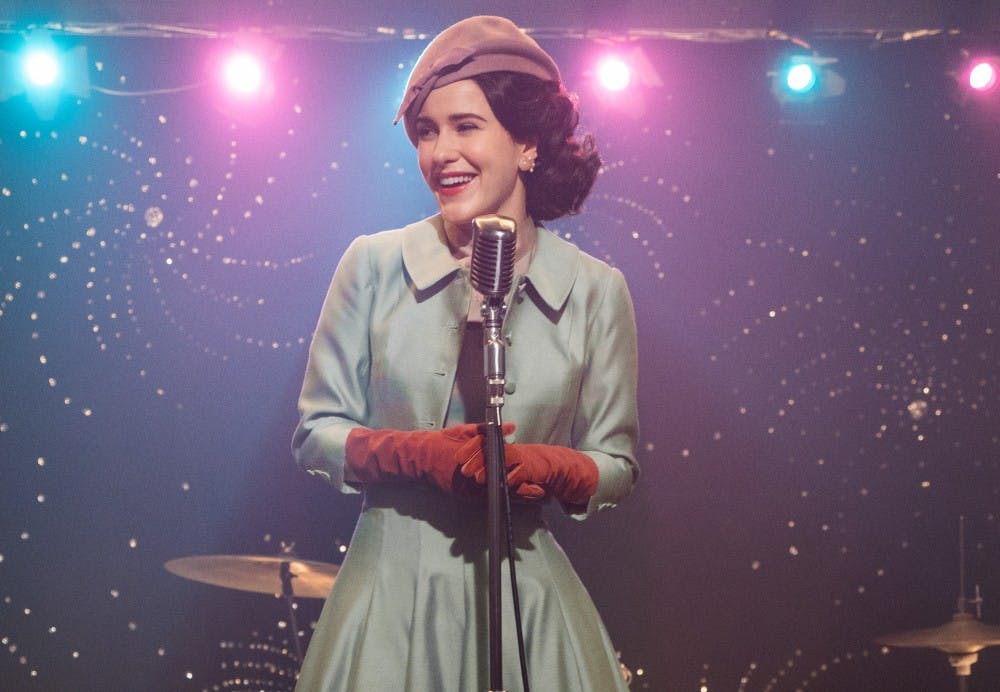I, along with literally everyone else on the planet, spent my winter break binging the latest season of The Marvelous Mrs. Maisel. I mean, with two Golden Globe wins under its belt, it’s almost impossible to not be intrigued by the dazzling life of upper–class Jewish New York in the 1950s. It’s whimsical, it’s hilarious, and it manages to portray every aspect of life in just the perfect rose–colored lens.
It’s almost impossible to hate the show, and that’s what unsettles me the most.
Now don’t get me wrong, the show is incredible and I highly recommend that everyone give it a watch. The acting is phenomenal, and Rachel Brosnahan breathes life into the character so beautifully that you’d assume it was her natural persona. She deserves all of the recognition she’s been receiving over the past two years and more, and I’m excited to see what adventures she’ll pursue as Midge Maisel in the following seasons.
However, I’m not as in love with the series as many of my friends and family, and I was left wondering what it was missing. So, I did a little rewatching and introspection, and I came to a few conclusions that I believe are the causes of my unhappiness. Feel free to disagree with me (and let me know, because I love a healthy debate!), but I would love to take a moment to play devil’s advocate for all of you Maisel fanatics out there.

Photo by Nicole Rivelli, courtesy of Netflix
For one, the dialogue is so heavy and winding that it’s impossible to not constantly be reminded of the producer’s Gilmore Girls past. The characters whiz through their lines a mile a minute in a way that’s meant to be funny and cute, but I almost found myself getting bored at the long–winded conversations. Although some moments were truly hilarious and entertaining, most of the show's dialogue felt simply like words attempting to fill up empty space left by the occasionally lacking plot. I personally enjoy well–placed meaningful silences and moments to breathe and just watch instead of straining to constantly listen, and I felt as though the series left me unsatisfied in that aspect. The dialogue had the potential to be compelling and poignant, but the multitude of words polluting every scene often left those few gems of powerful lines to be lost among the sea of others.
The Marvelous Mrs. Maisel also covers a lot of heavy topics—divorce, discrimination, and less–than–perfect family dynamics—but the show treats it with a level of lightness that almost makes me uncomfortable. For one, the show is meant to be quite feminist, with its shining female protagonist navigating the male–dominated world of comedy, but it falls short of expectations for me. It roots for and emphasizes the kind of upper–class white female empowerment that embodies the antithesis of true intersectional feminism, and I find it incredibly difficult for me to be proud of this series spotlighting a strong woman who also happens to be privileged in almost every other regard. Her manager, Susie, is lower–class and works a blue–collar job, but that often becomes the punchline of many jokes throughout the show. Her living situation is portrayed as a humorous caricature of poverty, but it actually skims the surface of a life that’s often the reality for many working–class city dwellers. Although I couldn’t help but be outraged at the lack of recognition Midge receives throughout the series due to her gender, I often lost that level of relatability in most other scenes. The protagonist’s attitude towards women’s rights had a sense of levity that didn’t resonate with me. Midge even interrupts a protest of women at a park during the first season, where she delivers a speech that is half–relevant, half–comedy, and I found that scene to be quite representative of the tasteless way the show tackles gender inequality.
But, how the show deals with feminism is only one of the many examples that could be brought up regarding the superficial manner in which it treats serious issues. Although the true purpose of The Marvelous Mrs. Maisel is to be a comedy series, I’m left wondering if topics like these should simply be left out altogether if the show is unable to shed the proper respect onto them.
The show is colorful and bright to the point where it’s blinding, and the saccharine optimism left a far–too–sweet taste in my mouth.
If you want to see a show to smile, laugh, and fade away from reality for a few hours, then I would highly recommend giving The Marvelous Mrs. Maisel a watch. Sadly, if you want content that will truly make you feel something—anything—then I would recommend browsing through Amazon Prime just a little longer.







